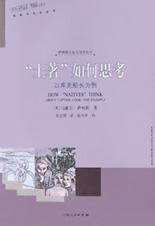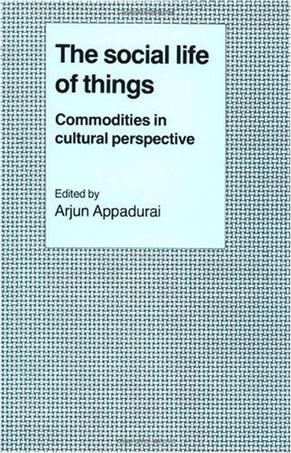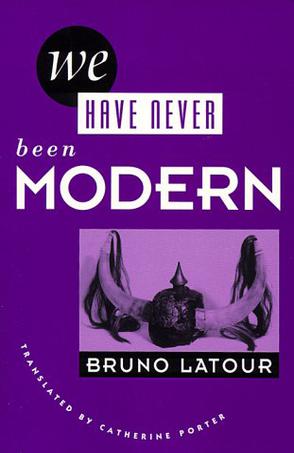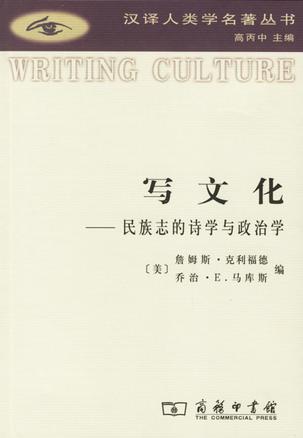-

“土著”如何思考
社会与文化丛书·萨林斯文化与历史论丛。 这是一本对批评进行回应的学术著作。这本书的一个突出特点是,附录占去了全书近三分之一的篇幅,主要是对自18世纪以来的各种相关的英文和夏威夷文献的详细讨论。 -

Debt
Before there was money, there was debt Every economics textbook says the same thing: Money was invented to replace onerous and complicated barter systems—to relieve ancient people from having to haul their goods to market. The problem with this version of history? There’s not a shred of evidence to support it. Here anthropologist David Graeber presents a stunning reversal of conventional wisdom. He shows that for more than 5,000 years, since the beginnings of the first agrarian empires, humans have used elaborate credit systems to buy and sell goods—that is, long before the invention of coins or cash. It is in this era, Graeber argues, that we also first encounter a society divided into debtors and creditors. Graeber shows that arguments about debt and debt forgiveness have been at the center of political debates from Italy to China, as well as sparking innumerable insurrections. He also brilliantly demonstrates that the language of the ancient works of law and religion (words like “guilt,” “sin,” and “redemption”) derive in large part from ancient debates about debt, and shape even our most basic ideas of right and wrong. We are still fighting these battles today without knowing it. Debt: The First 5,000 Years is a fascinating chronicle of this little known history—as well as how it has defined human history, and what it means for the credit crisis of the present day and the future of our economy. -

The Perception of the Environment
In this work Tim Ingold offers a persuasive approach to understanding how human beings perceive their surroundings. He argues that what we are used to calling cultural variation consists, in the first place, of variations in skill. Neither innate nor acquired, skills are grown, incorporated into the human organism through practice and training in an environment. They are thus as much biological as cultural. The twenty-three essays comprising this book focus in turn on the procurement of livelihood, on what it means to 'dwell', and on the nature of skill, weaving together approaches from social anthropology, ecological psychology, developmental biology and phenomenology in a way that has never been attempted before. The book revolutionises the way we think about what is 'biological' and 'cultural' in humans, about evolution and history, and indeed about what it means for human beings - at once organisms and persons - to inhabit an environment. -

The Social Life of Things
The meaning that people attribute to things necessarily derives from human transactions and motivations, particularly from how those things are used and circulated. The contributors to this volume examine how things are sold and traded in a variety of social and cultural settings, both present and past. Focusing on culturally defined aspects of exchange and socially regulated processes of circulation, the essays illuminate the ways in which people find value in things and things give value to social relations. By looking at things as if they lead social lives, the authors provide a new way to understand how value is externalized and sought after. They discuss a wide range of goods - from oriental carpets to human relics - to reveal both that the underlying logic of everyday economic life is not so far removed from that which explains the circulation of exotica, and that the distinction between contemporary economies and simpler, more distant ones is less obvious than has been thought. As the editor argues in his introduction, beneath the seeming infinitude of human wants, and the apparent multiplicity of material forms, there in fact lie complex, but specific, social and political mechanisms that regulate taste, trade, and desire. Containing contributions from American and British social anthropologists and historians, the volume bridges the disciplines of social history, cultural anthropology, and economics, and marks a major step in our understanding of the cultural basis of economic life and the sociology of culture. It will appeal to anthropologists, social historians, economists. archaeologists, and historians of art. -

We Have Never Been Modern
With the rise of science, we moderns believe, the world changed irrevocably, separating us forever from our primitive, premodern ancestors. But if we were to let go of this fond conviction, Bruno Latour asks, what would the world look like? His book, an anthropology of science, shows us how much of modernity is actually a matter of faith. What does it mean to be modern? What difference does the scientific method make? The difference, Latour explains, is in our careful distinctions between nature and society, between human and thing, distinctions that our benighted ancestors, in their world of alchemy, astrology, and phrenology, never made. But alongside this purifying practice that defines modernity, there exists another seemingly contrary one: the construction of systems that mix politics, science, technology, and nature. The ozone debate is such a hybrid, in Latour's analysis, as are global warming, deforestation, even the idea of black holes. As these hybrids proliferate, the prospect of keeping nature and culture in their separate mental chambers becomes overwhelming--and rather than try, Latour suggests, we should rethink our distinctions, rethink the definition and constitution of modernity itself. His book offers a new explanation of science that finally recognizes the connections between nature and culture--and so, between our culture and others, past and present. Nothing short of a reworking of our mental landscape. "We Have Never Been Modern" blurs the boundaries among science, the humanities, and the social sciences to enhance understanding on all sides. A summation of the work of one of the most influential and provocative interpreters of science, it aims at saving what is good and valuable in modernity and replacing the rest with a broader, fairer, and finer sense of possibility. -

写文化
《写文化:民族志的诗学与政治学》已成为当代人类学反思的经典理论著作,具有里程碑式的意义。在出版后的20年里,它成为国际人类学界引用得最多的一《写文化:民族志的诗学与政治学》,并且在人文科学及其他社会科学领域产生了广泛的影响。